Water & Wastewater Projects
The District strives provide high quality, reasonably priced wastewater treatment services for its customers today and well into the future. To that end the wastewater treatment plant is currently undergoing receiving upgrades to improve efficiency and capacity.
In 2014 the District issued $13.4 million dollars in revenue bonds to fund the WWTP Upgrade Construction Project. Thanks to the District’s strong credit rating of A minus from Standard and Poor’s, the total interest rate on the District’s bonds is 4.14% over 30 years.

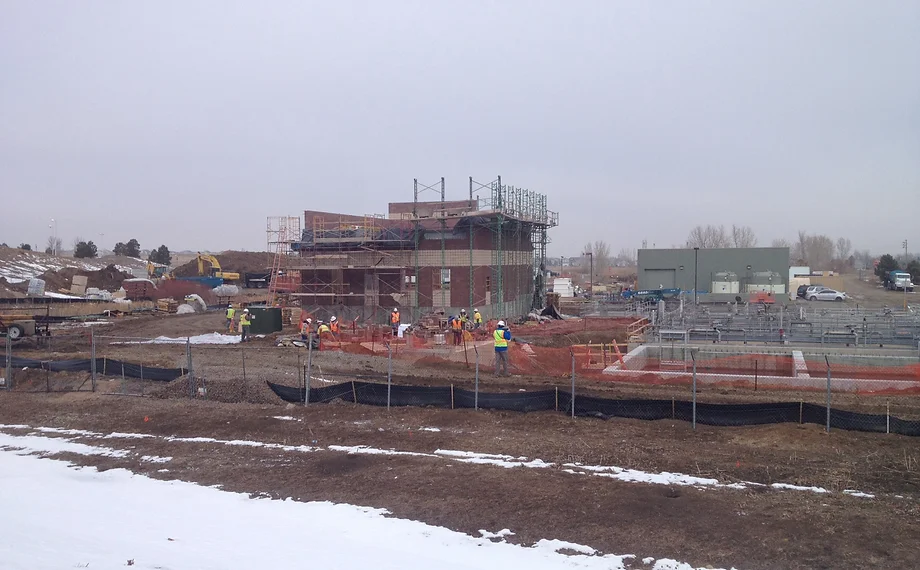

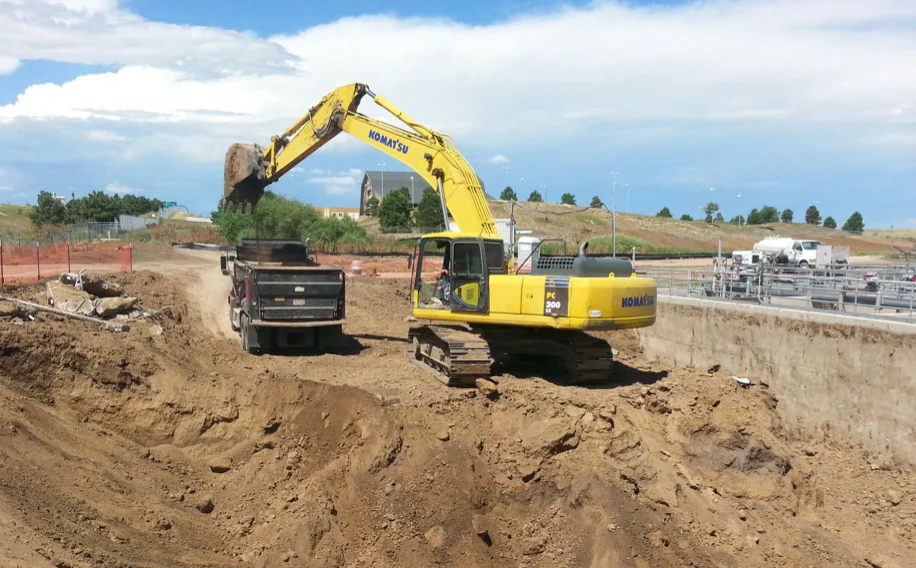
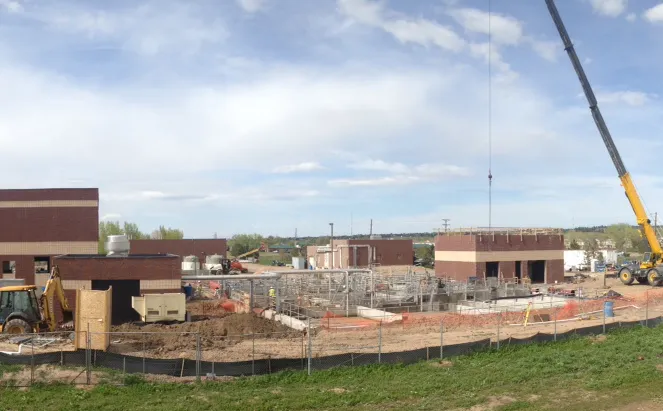
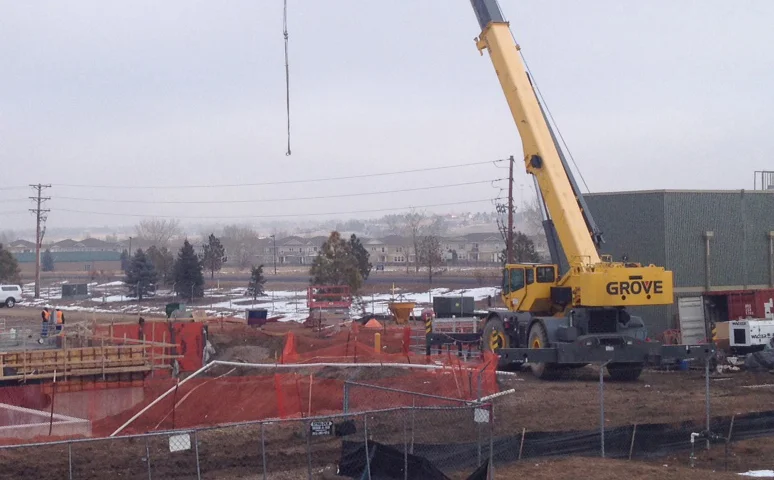
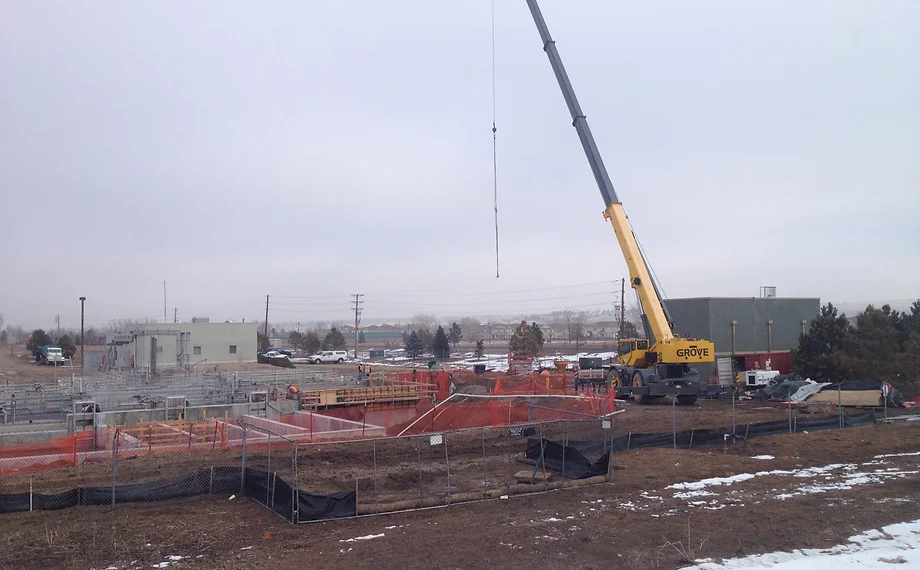


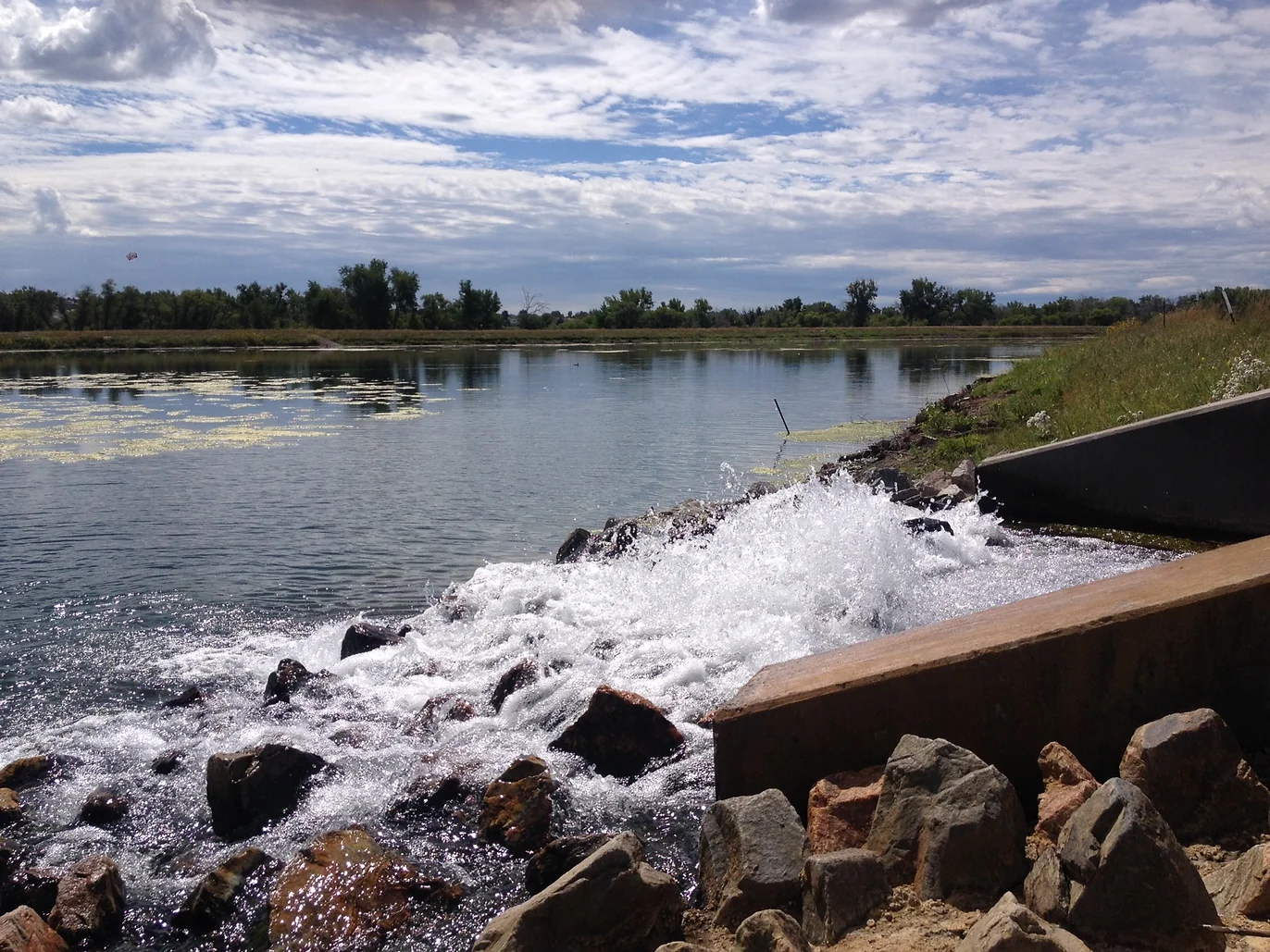
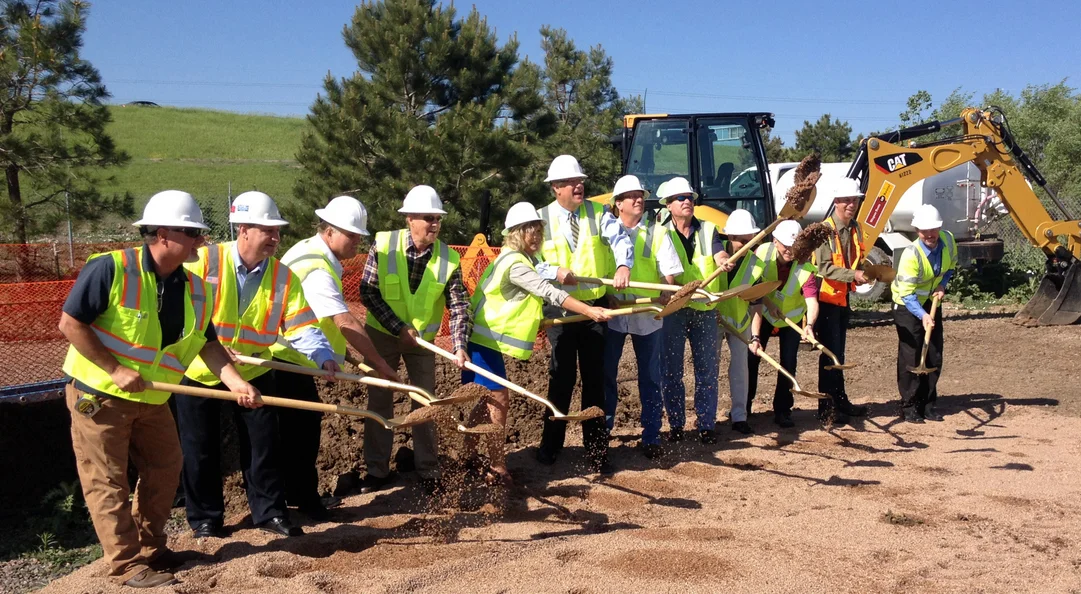
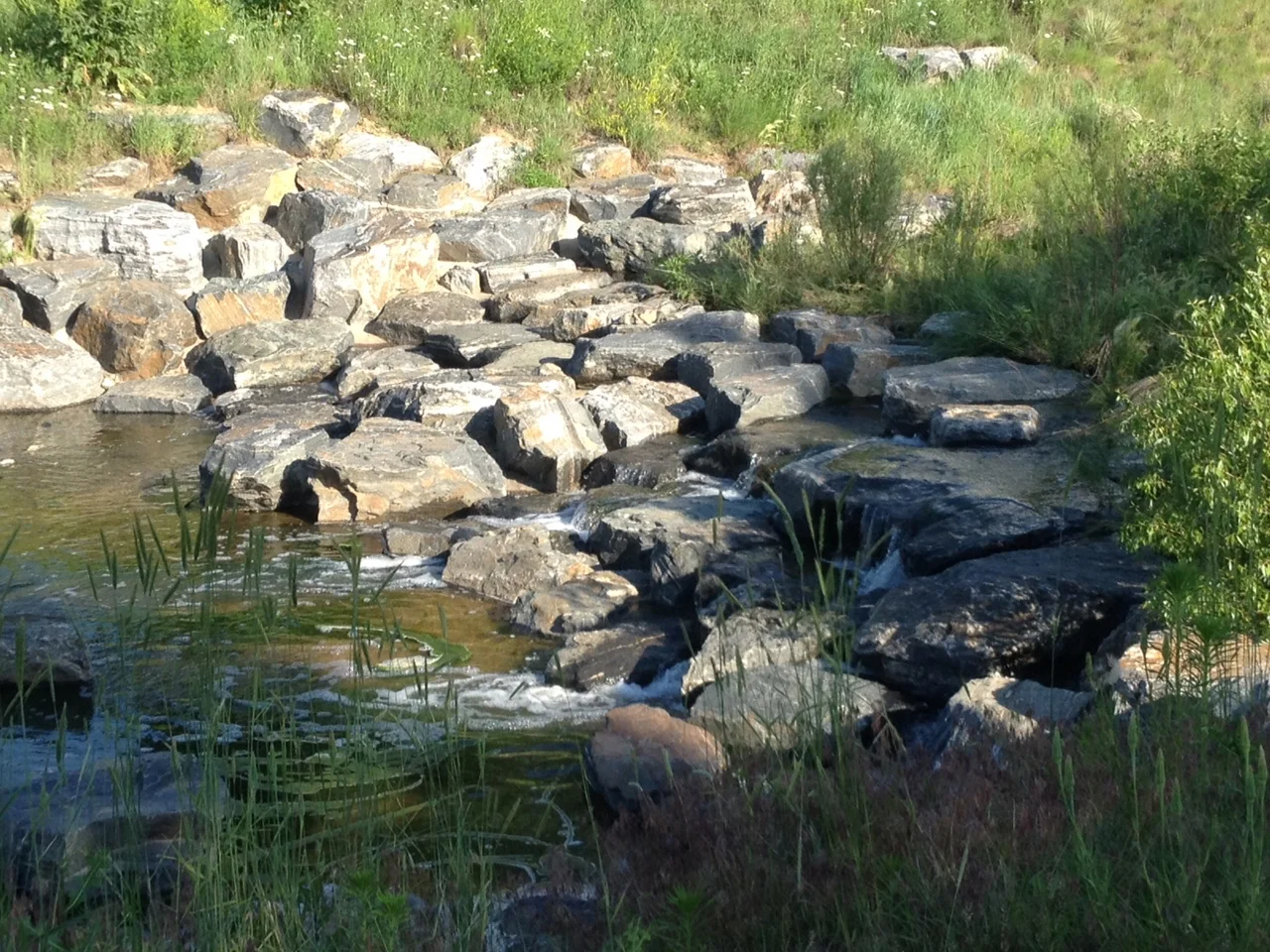












Regional Water Issues
The Stonegate Village Metropolitan District is currently participating in a regional effort to decrease its dependency on groundwater supplies through the acquisition and provision of renewable water resources. The District has purchased of capacity in the Reuter Hess Reservoir for long term renewable water. Please note that the “sustainability fee” on your water and sewer bill generates funds specific for the purpose of long-term renewable water.
The SVMD is an active participant in the South Metro Water Supply Authority (SMWSA) and the Water Infrastructure and Supply Efficiency (WISE) initiative <click here>.
The partnership will provide a renewable source of water supply by combining unused capacities in Aurora Water’s Prairie Waters Project with unused water supplies from Denver and Aurora. During the years Denver and Aurora don’t need all of that water, 10 Douglas County entities that are part of the South Metro Water Supply Authority (including the SVMD) will be able to buy the unused water to help reduce reliance on nonrenewable groundwater.
In order to take part in the WISE partnership and accept WISE water when available, the District has embarked on a two (2) major infrastructure projects. These are:
- Chloramines Conversion project at its Water Treatment Plant, and
- WISE pipeline tie-in project that will provide a transport system for waters obtained from the WISE system and delivery to the District’s Water Treatment Plant.
Chloramine is a type of disinfectant used in drinking water to remove bacteria and viruses consisting of both chlorine and ammonia. In the Chloramination process, ammonia is added to the water at a carefully controlled level. The chlorine and ammonia react chemically to produce chloramines. Chloramination is as effective as chlorine in killing many kinds of bacteria and other germs that may be harmful to personal health.
Chloramination reduces the level of certain byproducts of the chlorination process. These byproducts, called Total Trihalomethanes (TTHM) and Haloacetic Acids (HAAs), result from the reaction of chlorine with small amounts of naturally occurring organic substances in drinking water.
In addition, customers should notice an improvement in the taste and odor of their drinking water. With Chloramination, the chlorine smell and taste in our water will be less apparent.
Yes. Chloraminated drinking water is perfectly safe for drinking, cooking, bathing, and other daily water uses. There are, however, some identified groups who need to take special precaution with Chloraminated water such as those who use drinking water for kidney dialysis machines, specialized industries, and fish owners.
Other Water Related Projects
The District is also pursuing other options that will enable the reuse of treated effluent and the capture and reuse of Lawn Irrigation Return Flows (LIRF). More information will be shared as this project moves forward.

To date, the District has spent 1.8 million dollars on design and permitting activities. The District has been able to cash fund all of the design and permitting expenses by using the District’s cash reserves from the Wastewater Enterprise Fund. The construction of the updated wastewater treatment plant is scheduled to begin on June 6th, 2014 and will be completed in October 2015. The estimated total cost of the project is approximately 13.4 million dollars.

In order to build the much-needed wastewater treatment plant, the District has issued 13.4 million dollars in revenue bonds to pay for the capital construction of the plant. Thanks to the District’s strong credit rating of A minus from Standard and Poor’s, the total interest rate on the District’s bonds is 4.14% over 30 years The District was fortunate that interest rates remained at historic lows, which enabled the District to have debt service payments as low as possible. Even with favorable borrowing conditions the District was forced to increase wastewater rates effective May 1, 2014 to pay for the reconstructed wastewater plant. The cost to fund the Debt Service payments for the new plant is $21.64 per single family equivalent. The Operations charge has increased to $6.46 per thousand gallons based upon the amount of water used during the winter months of December, January, and February. In years past, the District was able to keep wastewater rates artificially low by transferring money from the Water Fund to the Wastewater fund. This practice of subsidizing wastewater rates is no longer possible, given the fact that the District will soon begin the construction of various pipelines needed to deliver renewable water to the District’s customers The new rates you will be paying brings Stonegate’s wastewater rates more in line with what other providers are charging in our region.
The District Board of Directors and their management team are committed to meeting the environmental regulations of the State of Colorado and the Environmental Protection Agency. We firmly believe that the only way this can be done, is to reconstruct the Stonegate Wastewater Treatment Plant. We are committed to managing the cost of this project and future water projects in the most responsible manner possible, thereby minimizing rate impacts to our customers. If you have any question or concerns about the District services, projects and programs, you are encouraged to contact District Manager at 303-858-9909, or by mail at SVMD District Offices by mail at 10252 Stonegate Parkway, Parker, CO 80134.
-End of Special Announcement-
Also, over the past several years the Stonegate Village Metropolitan District has provided you, our customers with information on the status, operations and maintenance of the District’s Wastewater Treatment Plant located near the intersection of Jordan Road and E-470.
Special Water & Wastewater Project Documents
Regional Water Issues: The Stonegate Village Metropolitan District is currently participating in a regional effort to provide renewable water. The District purchased of capacity in the Reuter Hess Reservoir for long term renewable water. Please note that the “sustainability fee” on your water and sewer bill generates funds specific for the purpose of long-term renewable water. The Reuter Hess Reservoir ground breaking ceremony was held on September 5, 2008.

